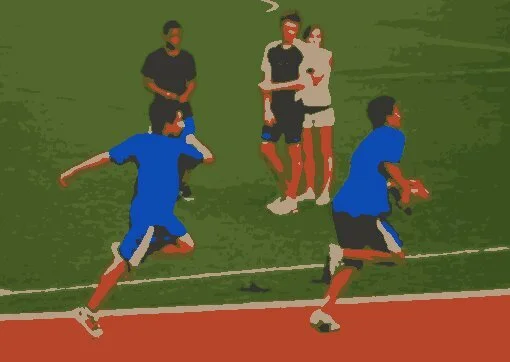Part One: Cookies and Moneyball
This will be the first piece in a series of posts that explore the American Dream.
You walk by and see a cookie stand where the delicious treats are being given away for free. How many do you take? Probably not as many as you’d actually want since you don’t want to be perceived negatively for taking too many of a free, and therefore, shared resource. But what if each cookie is worth $1? You would most likely take more than you would if it were free because this is now a market transaction. This is the basic gist of studies conducted by Dan Ariely, a professor at Duke University and the author of Predictably Irrational. This article sums it up quite nicely.
In conjunction with reading Ariely’s work, I had also read A Well-Paid Slave by Brad Snyder, which details Curt Flood’s fight for free agency in Major League Baseball. Flood challenged the Reserve Clause, which essentially bound a player to a team for life. At the time, teams had the right to automatically renew a player’s contract that bound the player until retirement or until the team released or traded the player. All the cards were in the hands of the player’s team (read: employer). Despite being compensated, being in such a system caused the players to virtually be slaves to the team’s will and therefore making each player “A Well-Paid Slave”.
Given these two readings, I began to consider what the ramifications might be for how we view slavery in our contemporary society through the lens of such market and social norms. Slavery is a completely deplorable institution and concept because it insinuates, among other terrible things, that people can be considered property. Furthermore, in a strictly monetary sense, slavery is a system by which it is acceptable to “pay” people $0 for their labor. In the case of the MLB players under the Reserve Clause, it was the restrictive contracts, not a lack of compensation, that caused the players to be considered slaves. However restrictive contracts are not the only way, in which a new modern form of slavery can manifest itself. What about figuratively paying someone $1 or some other low amount (read: minimum wage)? The minute the compensation is greater than zero we stop viewing the issue as a social one and begin to view it as a market one. But what if the number we have settled on, in this market-driven focus, is not allowing individuals to function and participate fully in society? The answer to this question may vary by individual-to-individual but in any case, one can’t begin to solve a societal or systematic problem without first identifying their own role in it. Therefore, it is important to consider the cognitive dissonance that exists when we fail to identify when our market or social norms are at play and how such contradictions make us complicit with the very systems we claim to oppose. While such a realization can be difficult to process, it is the first step to identifying how we passively perpetuate a problem that we can actively solve. To be continued.
References:
https://thedecisionlab.com/impact-free-consumer-decision-making/
https://www.merriam-webster.com/dictionary/reserve%20clause



